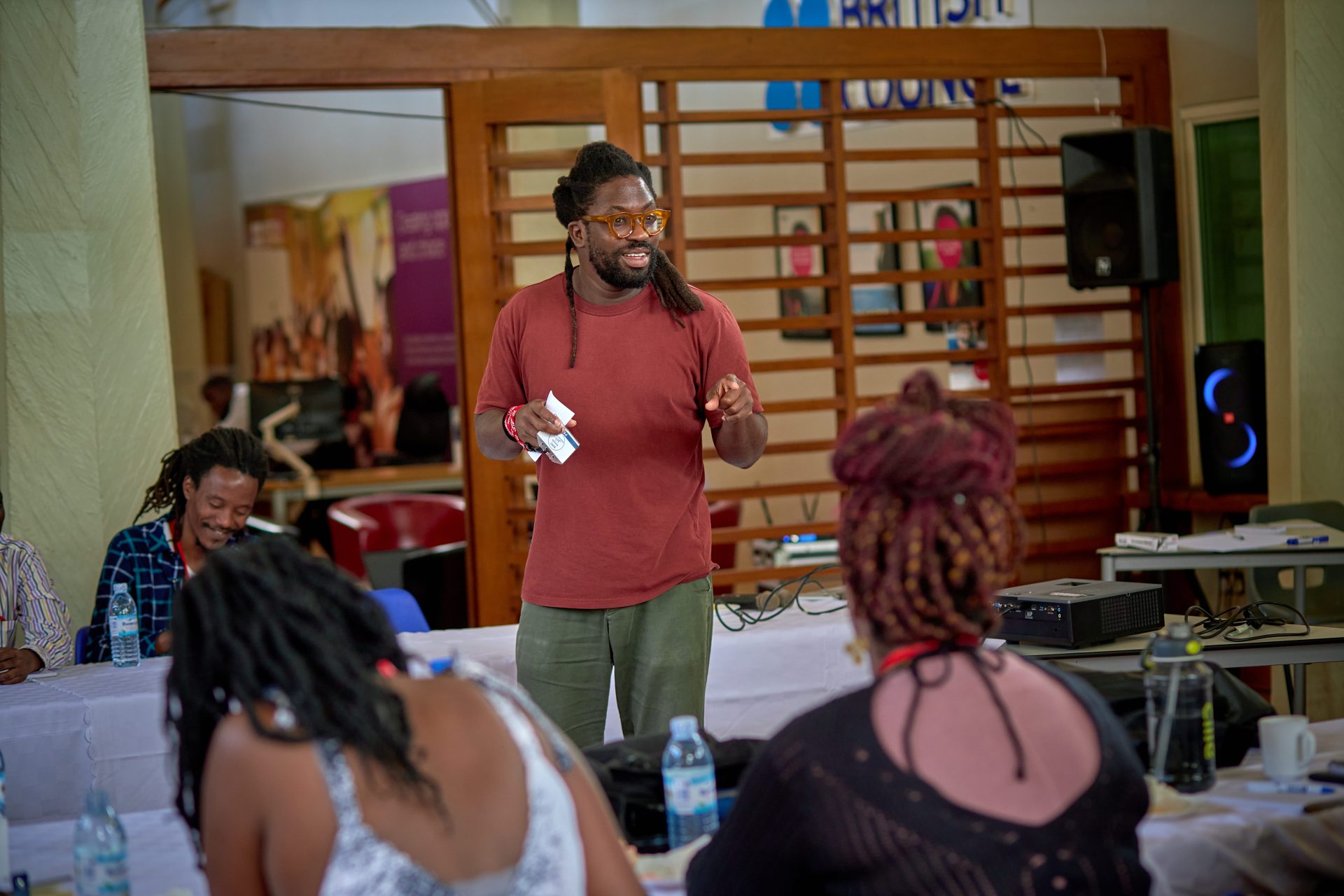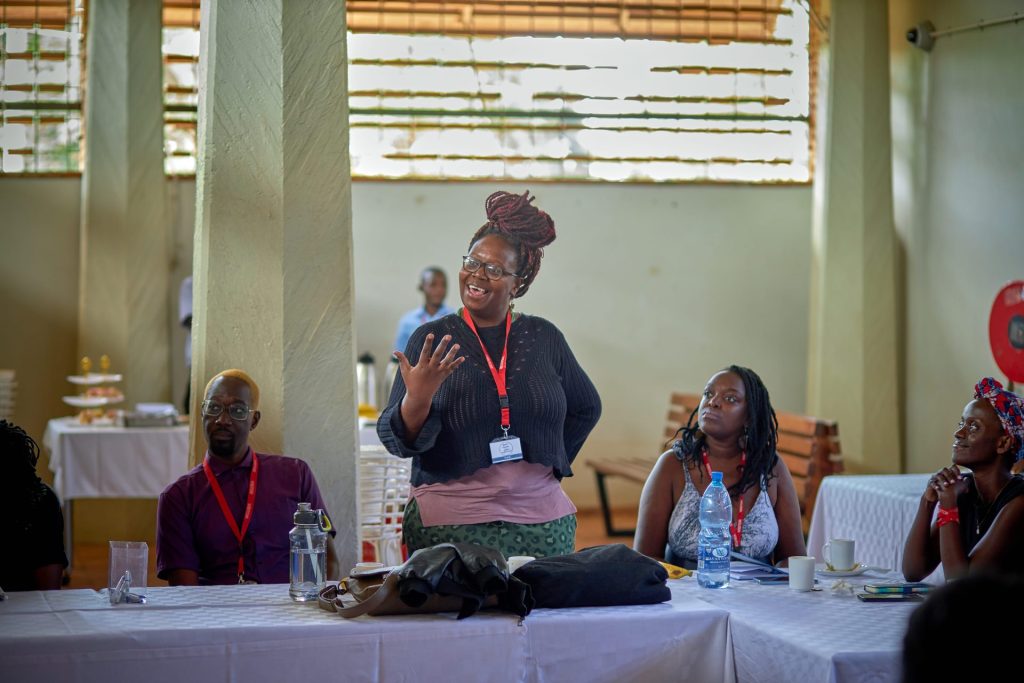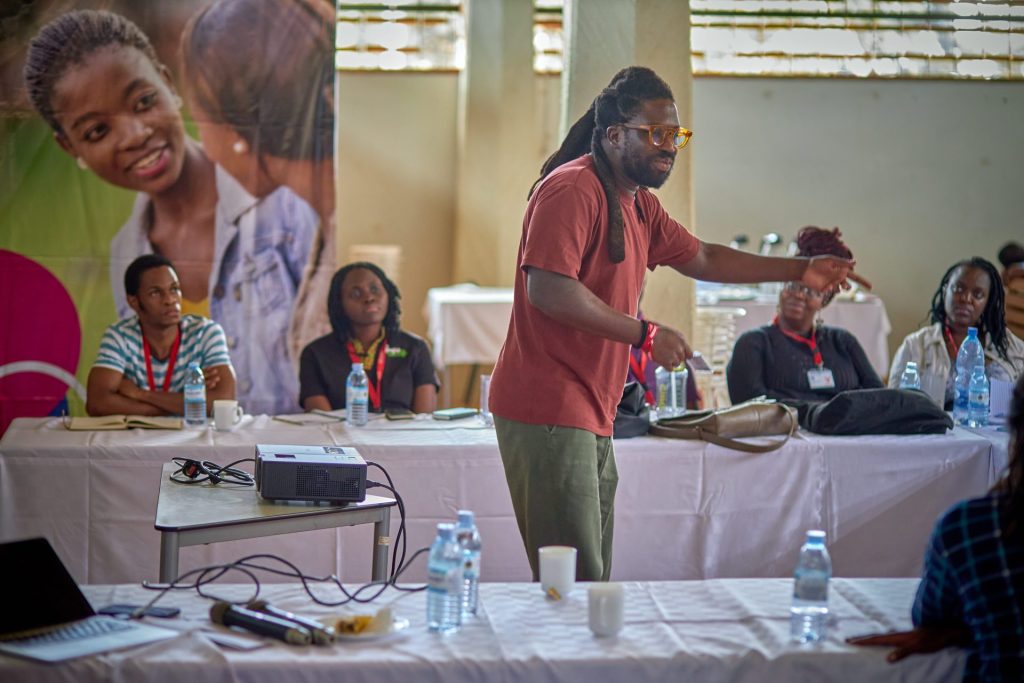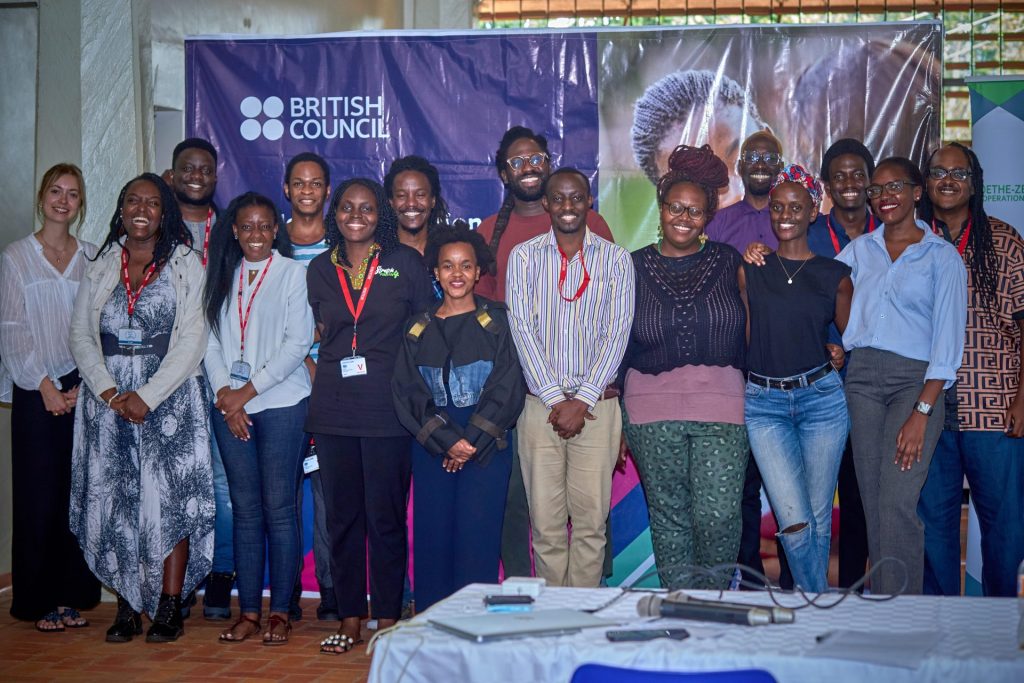‘How I learned to stop worrying and screenwrite with Adjani Salmon’
Home »

I had the privilege of attending a Screenwriting Masterclass by Adjani Salmon, hosted by
Goethe Zentrum and British Council. Prior to the announcement of the masterclass, I had
never heard of Adjani, but after a deep social-media-dive, I found out this guy was a BAFTA
award-winning writer and actor. What?! So, I quickly binge-watched his series “Dreaming
Whilst Black” and I fell in love.
I am not going to lie. While watching this series got me excited for the masterclass, it also
left me feeling a little intimidated. While I have had plenty of experience as a Film and TV
Producer, I am still pretty new to this whole screenwriting thing. So, to be accepted into a
program with a filmmaker of Adjani’s caliber…I was in awe at how blessed I was.
Determined to take full advantage of this opportunity and absorb as much as I could from
the masterclass, I put my big-girl pants on and made a list of specific questions about
screenwriting that had been bothering me as a first-time writer, hoping there would be
room for me to ask him during the class.

Meeting Adjani in person was quite different from what I expected. I was blown away by
how incredibly nice, relatable, and down-to-earth he was. His energy immediately put me at
ease and made me feel like I had known him for years.
Adjani started the workshop by having each of us introduce ourselves and the project that
brought us to the masterclass. This icebreaker brought us closer, not only to Adjani, but the
other writers in the room. He helped us establish where each of us stood in our writing
careers.
I was delighted to hear that the masterclass welcomed writers of all levels, from beginners
like me to experienced writers who had penned feature films and TV shows. Most
importantly, he helped us understand that no matter how advanced you are in your
screenwriting journey “the first draft is always going to suck.” It takes multiple drafts to
get to the gold.
After the ice-breaker, Adjani took us back to the basics of screenwriting – THE STORY. He
asked the room, “What is a story?”. Surprisingly, despite the seemingly simple question, the
class struggled to provide a concise answer. I could only think to myself, “A story is a story.”
Eventually, one participant stated that a story is “a retelling of events.” Adjani then built
on that to teach us that “a story is about a character embarking on a journey to achieve a
goal while encountering conflict.”
This simple yet profound explanation had a significant impact on my perspective of
storytelling. It highlighted that no matter how complex the film, every screenplay is built on
the fundamental basics of story-telling. A screenwriter’s mastery of these basics is what
separates the okay-stories from the great ones.
Adjani delved into the different types of conflict that a character might experience on their
journey to achieve a specific goal. These included: ‘Inner-conflict’, ‘Interpersonal Conflict’,
and ‘Environmental Conflict’. Adjani broke it down even further by explaining how these
different levels of conflict interact to create ‘tension’ for the audience in each scene.
Tension keeps the audience engaged by getting them to ask, “What happens next?”
Adjani went even deeper by showing how writers use suspense, mystery, and surprise to
maintain a consistent feeling of tension in their films. Suspense is a state where the
audience knows something the characters do not; Mystery is a state where the characters
know something the audience does not; and Surprise is the dramatic pay off the audience
experiences from either of these states.
Adjani used scenes from his original series, “Dreaming Whilst Black,” “Kramer versus
Kramer”, and a series of award-winning short films to illustrate how these principles were
employed to create brilliant stories. This helped me understand the concept of the Russian
nesting doll 3-act structure and how it applies to various mediums, including short films,
feature films, and series. Without tension, your film is dead.

In the afternoon, Adjani did something even more amazing by providing us with a formula
for writing a logline and explaining how to use it. As filmmakers, we need to pitch our
content to non-filmmaking entities, such as corporate sponsors, to secure funding. These
potential funders usually have limited time, and if you don’t grab their attention within a
sentence your project may not receive funding.
Adjani helped us understand the two types of loglines and how our various screenwriting
projects fit into these structures. He worked on each of our loglines with the entire class to
find the most concise and catchy way to pitch our stories. It was enlightening to see that
even at his level of experience; it still takes constant writing and rewriting to craft a
compelling logline.
Even though we ran out of time, Adjani was more than willing to go overtime to ensure that
we covered all the loglines. His compassion and dedication was evident as he continued the
discussion, even when he didn’t have to. After the masterclass, he was still gracious enough
to take photos and engage in one-on-one conversations with us.
When I asked him about working on international film sets, he provided insights about the
complexities of dealing with higher stakes film productions at that level. This conversation
provided me with some hindsight and strategies on how to navigate the pressures of larger
productions as I continue to grow my film career.

In the end, the Screenwriting Masterclass with Adjani was a life-changing experience. I
learned practical techniques to become a better screenwriter and insights on what to expect
when my content breaks into the international market. Adjani was fun, interactive, gracious,
professional, and knowledgeable throughout the entire experience. I am incredibly grateful
to Goethe Zentrum, British Council and Adjani for making this masterclass possible. I look
forward to thanking them in my acceptance speech when I (hopefully) win my future BAFTA.
By Lesham Kenogo
